'We Missed A Meeting' Hits the 5-Year Milestone
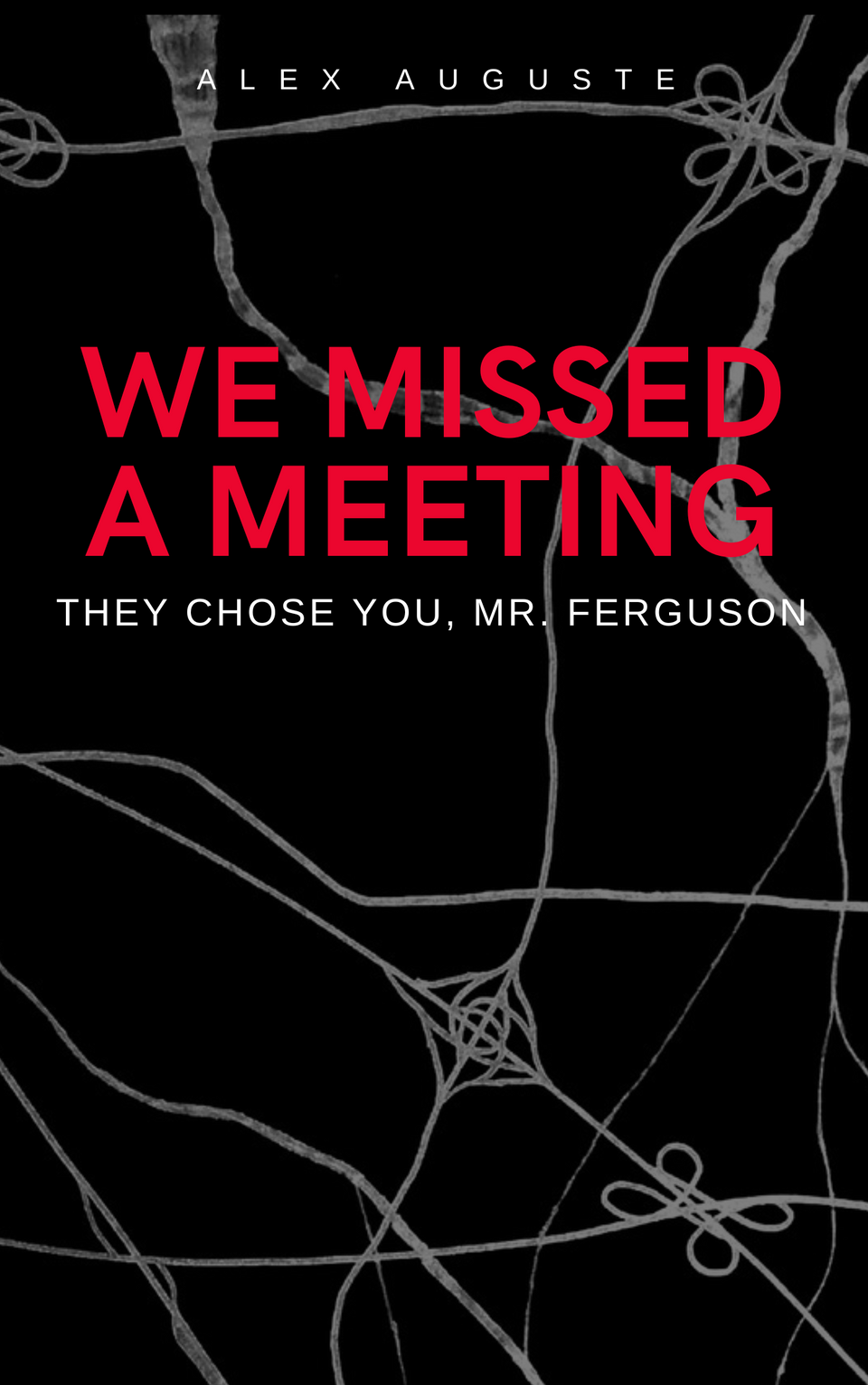
Five Years Ago, The "Close-to-Home" Science Fiction Predicted A Future Across Topics, Genres, and Downturns.
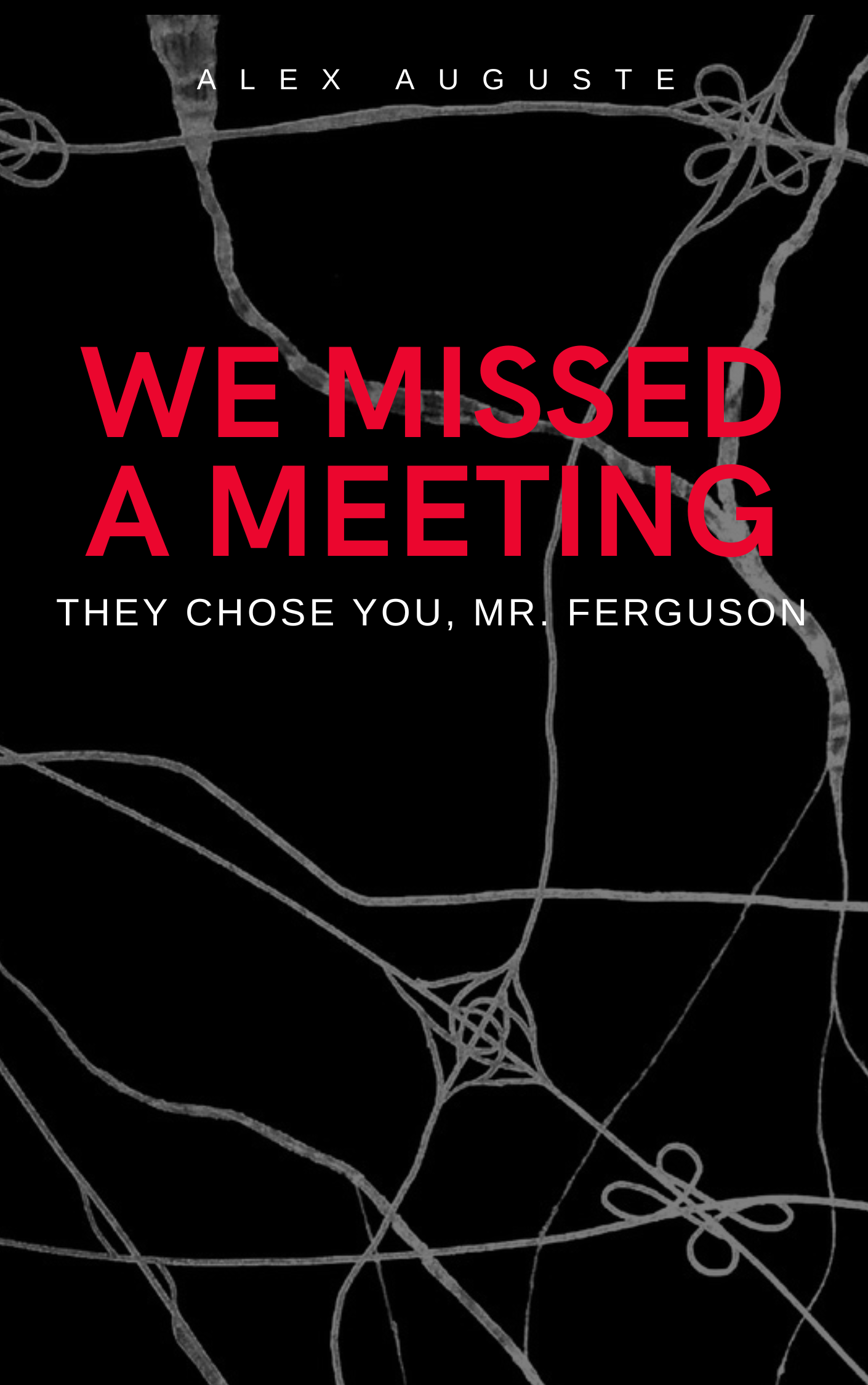
Somewhere around six or seven years ago, I started writing a short story I had all intentions of finishing, but had no idea what the end product would look like. My goals were only focused on building the character and the plot in a way that made sense, felt realistic, and would make the reader eager for more understanding on what was going on. The story would be about the morning that a particular character, a young, 26-year-old named Richard Ferguson, would wake up like any other Monday, go to work, and the find out that only his Black colleagues had arrived. The original version of the story would have it where the group would have dialogue about diversity, feeling seen, and then would have a ragefit and destroy the office.
That's how it would have ended had I decided that just a few short pages were going to be enough to satisfy my urge to tell a story.
I started writing more and more and more. And at first, it wasn't even actually writing the book, but instead background info, character backdrops, and precipitating events and their impact on future events. Before I knew it, months later, I had the all of the workings for the foundation for We Missed A Meeting The Series.
In February of 2018, I had taken to social media to announce that I had completed my first book, and would spend the next six months tweaking it here and there before finally releasing it to the world on Aug. 16th, 2018.
Proudly, it's been 5 years since that release, and We Missed A Meeting: They Chose You, Mr. Ferguson is still top tier, and one of my best pieces of work.
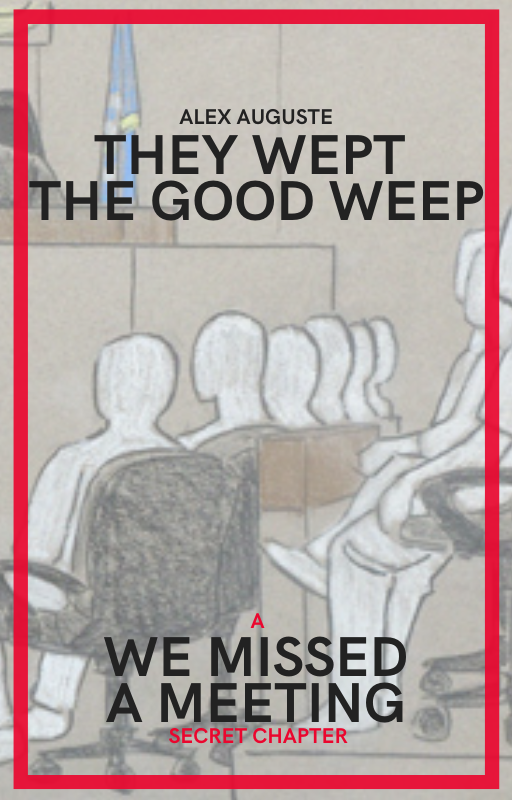
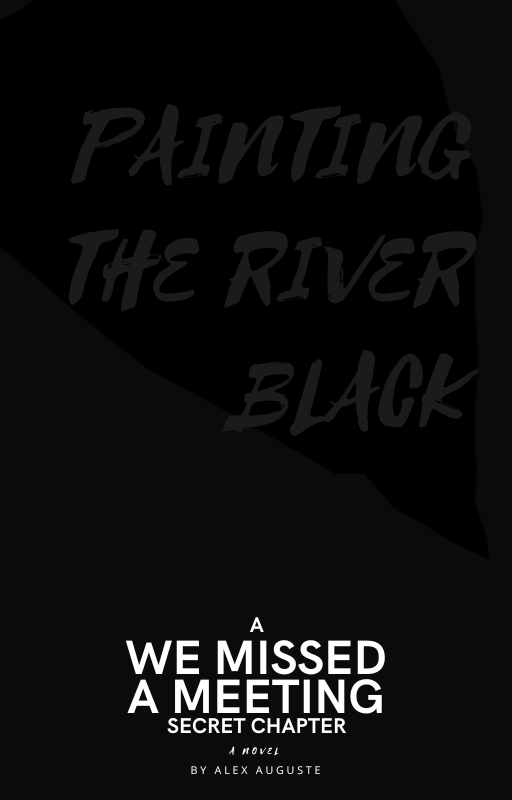
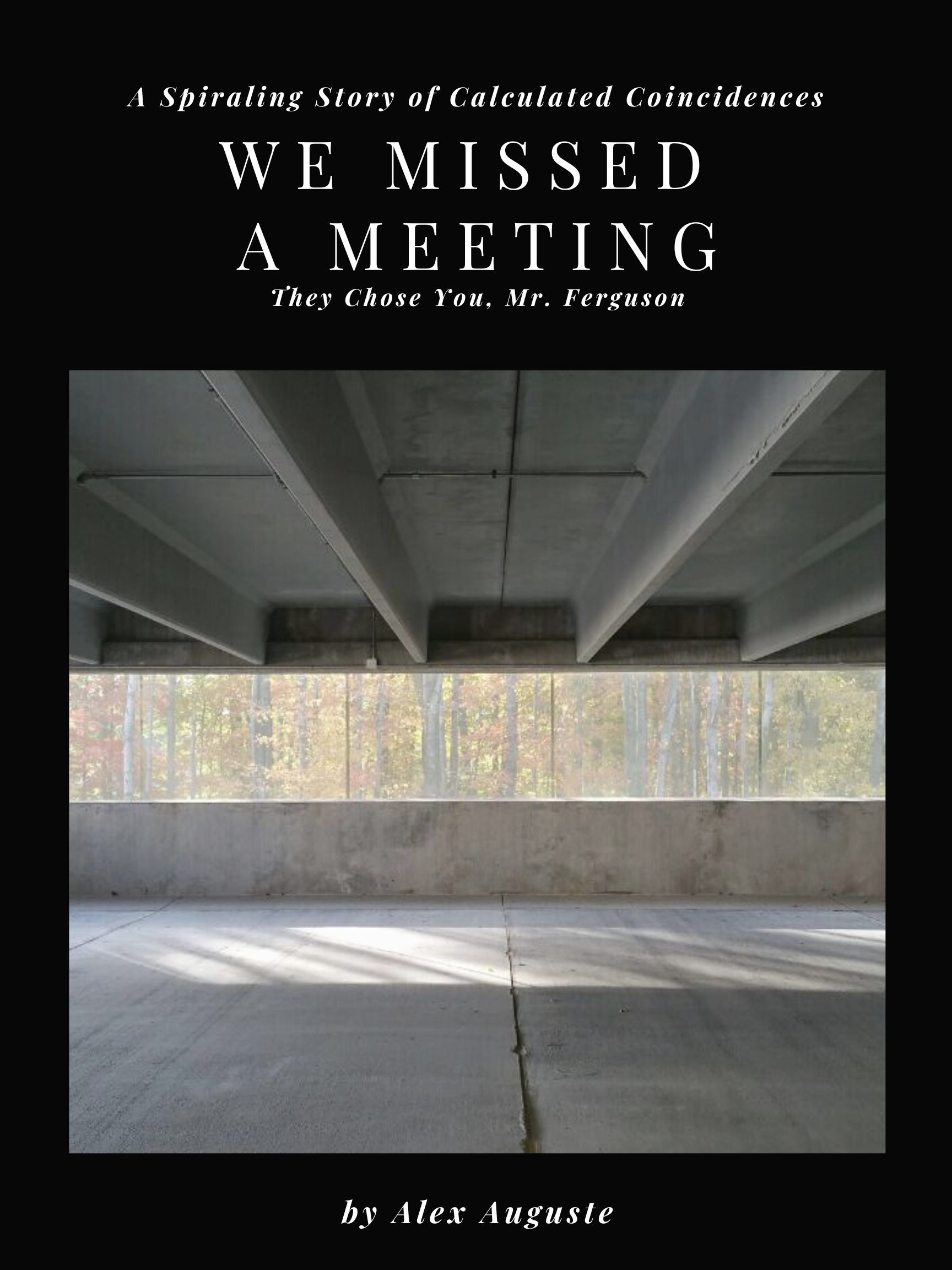
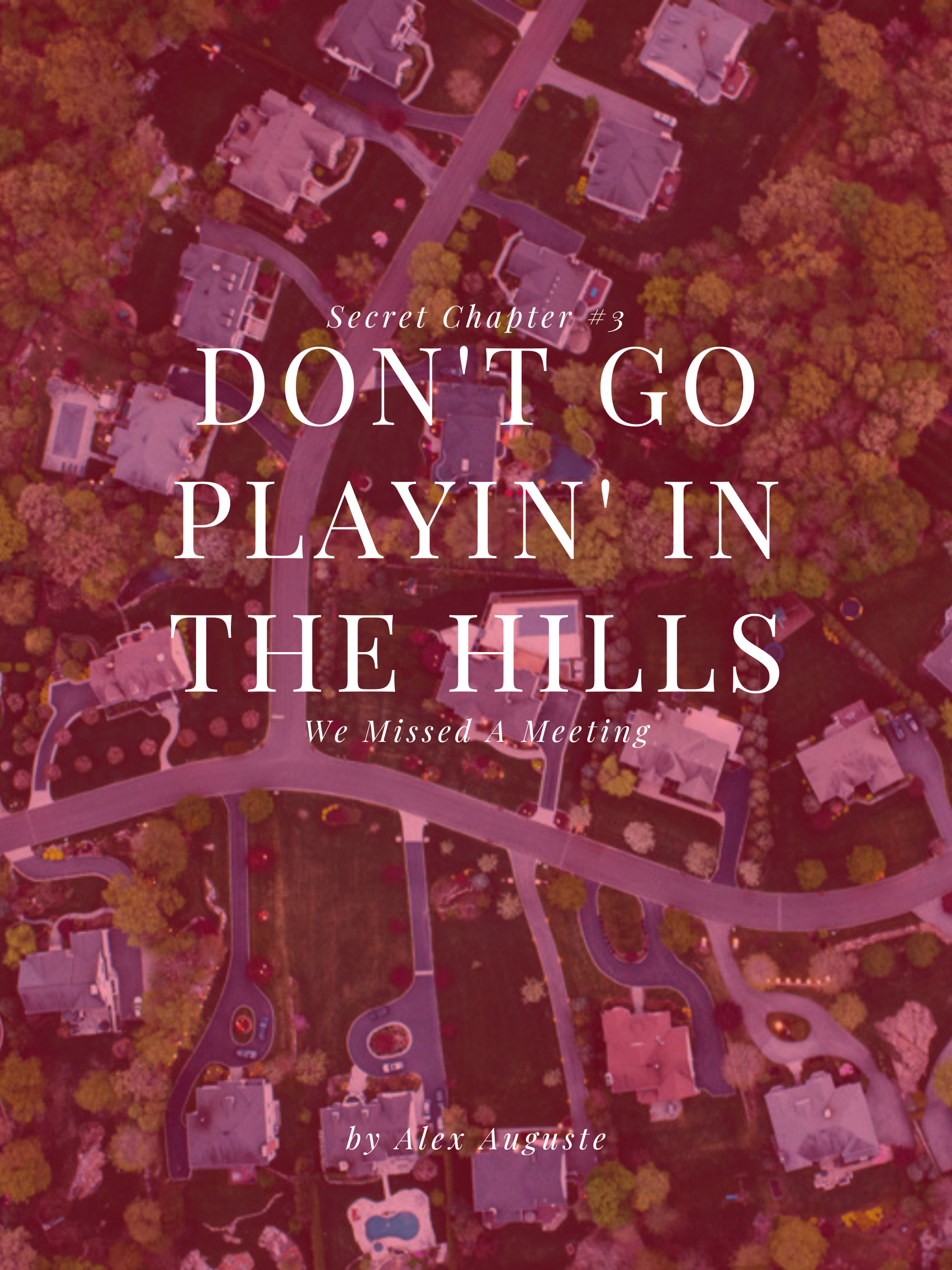
Against the backdrop of a global phenomenon where there seem to only be Black people present across the world, We Missed A Meeting is a story about who we are - The Diaspora - and what we can be in an isolated situation. On June 8th, 2020, when this odd day unfolds, the world gives it the name "The Absence", and in all of that confusion, Richard Ferguson finds that the last word, email, text, or voicemail sent by hundreds of thousands of people is his name, automatically putting him as a person of interest in a growing missing person's case. From next-door neighbors to politicians, congressman, and celebrities, Richard Ferguson's name is so consistently mentioned, that all attention falls on him as the world tries to gain its bearings.
The conspiracy against Richard Ferguson, though, is no fluke and it's no coincidence. Behind the scenes, manipulating countless situations and scenarios is a sentient and rogue artificial intelligence named, Alexander, who takes Richard's predicament and turns it into his opportunity. But in a fast-changing world with conflicted leadership, lack of unity, and dwindling resources, the so-called opportunity has to wait while Richard and the city he lives in deals with misfortune after misfortune.
Almost consistently throughout They Chose You, Mr. Ferguson, there's commentary and critique about the failing structures we're so content with being part of. The commentary includes American politics, banking, automotive manufacturing, corporate culture, diversity and inclusion, and relationships. One part drama and another part science fiction, the story follows Richard's perspective in a world that starts to decline into dystopia.
In March 2019, I followed up the release of They Chose You, Mr. Ferguson with a 2nd Edition Paperback, this time, including in it "They Wept the Good Weep" and "Painting the River Black", two short stories labelled as "secret chapters". The secret chapters speak to what's happening in the world around Richard, many of the events seemingly unrelated to him and outside of his knowledge. "They Wept the Good Weep" builds on a revenge story that find Mia Morgan at the state courthouse for the sentencing of Julius Mann, an elderly man who had murdered her daughter just a few years prior. When Mann, his defense, most of the jurors, the judge, and the media fail to show up, Mia believes "justice refused to show up to be served". Confronted by one judge, Judge Randolph, Mia is both comforted and inspired by the Judge's own experience and the guilt she's had of having to work in the judicial system. The story sets up a revenge narrative for We Missed A Meeting that will expand during future stories.
Meanwhile, "Painting the River Black" speaks on the value and understanding of history and tradition for community-building and -tying purposes. Centered around what Juneteenth would be like following The Absence, the story introduces Theresa Johnson-Hughes, a 73-year-old woman and community leader who lives in the lower income neighborhood called The Heights. Upset and turned off by how City Council handles painting the river Black for the holiday, she returns to her neighborhood, activating her family and neighbors to begin their unification, eventually become an even stronger neighborhood and a powerful community.
Later that year in October [2019], I released "Don't Go Playin' In the Hills". The third secret chapter, follows four young boys who have ambitions of throwing a house party in the abandonned homes in The Hills. Prior to The Absence, The Hills was predominantly - if not completely - White. For the young kids enduring life post-Absence, boredom is a hell of a drug, one that can easily get them into trouble or danger. The story analyzes how mass communication would work in a world where social media companies operate with less then 3% minorities/Black employees, and the impact it has on African-Americans' ability to use mass communication to extend our reach.
These four stories have a lot of dynamics, and are all woven together in a way that probably feels very much like the MCU to readers who are familiar with the Marvel Studios movies and shows. Theresa Johnson-Hughes is related to Will Johnson-Hughes, who works with Richard. Will has a cousin named Terry, who arrives to the party in The Hills to shut it down for the children's safety. And lastly, Mia Morgan makes her presence felt at the end of "Playin' In the Hills". The story is one giant web of characters and events.
Between the dynamics, the suspense, and the predictions of what 2020 would be like, We Missed A Meeting made off to a great start in its first year and prepares for the release of the 5th-Year Anniversary Edition. This is expecting to be a special edition that will feature a brand new cover, new intro and prologue. The first two secret chapters will still be available in the copy of They Chose You, Mr. Ferguson while "Don't Go Playin' In the Hills" will likely move from Kindle exclusively to a paperback edition.
For more information on what's to come for the 5th Anniversary Edition, be sure to check out the News tab, or subscribe to I AM ALEX AUGUSTE for updates straight to your inbox as well as premium content made exclusively for paid members.
Works Like We Missed A Meeting
The inspiration behind We Missed A Meeting was actually very minimal, and much of what you find in the plot is original work, plotting, and character dynamics. It's a story about how we have to view the collective of our local and global community and accept our place within it, no matter how big or small it may be.
Movies like The Belko Experiment caught my interest after one reader felt like the pacing of the story matched that of the movie, but outside of the small similarities, the book and the related stories have no "creative cousins". It does now likely has a place, though, among other works that have come out in recent years. The release of films like Us (2019) and Sorry To Bother You (2018), shows like Atlanta (2018 - 2023), and newer movies like They Cloned Tyrone fall into this genre of "Afrosurrealism", and with them all falls We Missed A Meeting.
D. Scott Miller refers to Afrosurrealism as:
"Afro-Futurism is a diaspora intellectual and artistic movement that turns to science, technology, and science fiction to speculate on black possibilities in the future. Afro-Surrealism is about the present. There is no need for tomorrow’s-tongue speculation about the future. Concentration camps, bombed-out cities, famines, and enforced sterilization have already happened. To the Afro-Surrealist, the Tasers are here. The Four Horsemen rode through too long ago to recall. What is the future? The future has been around so long it is now the past."
Within We Missed A Meeting exists a city, The D, where the Black folks are fighting to unite while artificial intelligence coordinates against an impendin recolonization of Earth.
Stay tuned for more information on We Missed A Meeting including official 5th Anniversary release date, and announcements surrounding Some Assembly Required.
Member discussion